Find Help
More Items From Ergsy search
-
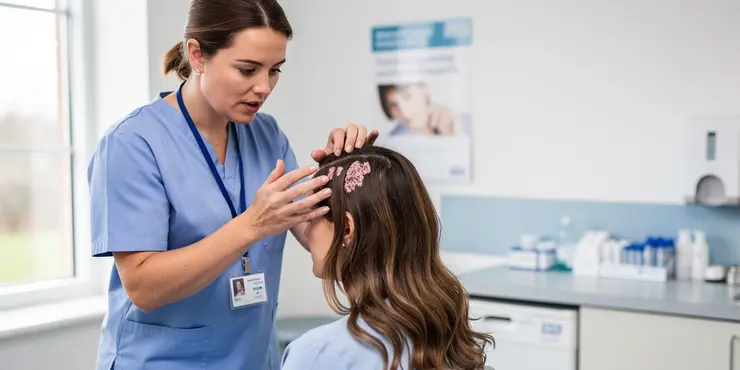
Treating scalp psoriasis
Relevance: 100%
-
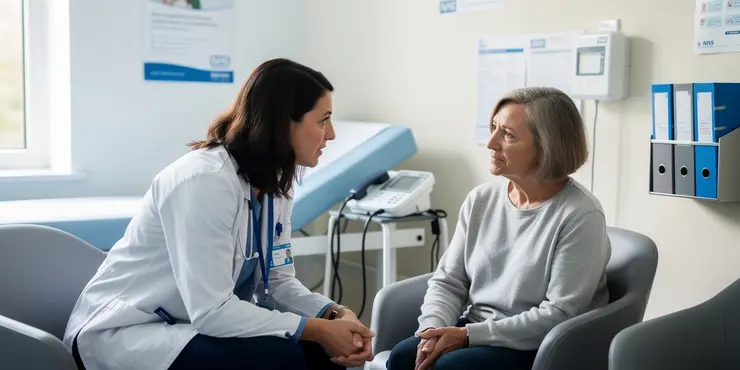
Psoriasis | NHS
Relevance: 58%
-
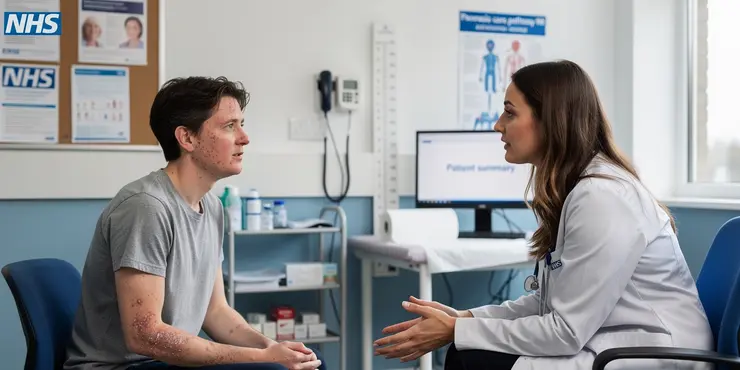
What is psoriasis?
Relevance: 57%
-
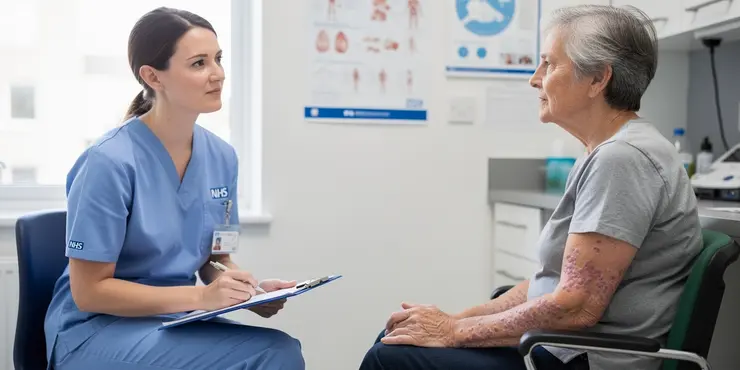
Is there a cure for psoriasis?
Relevance: 55%
-
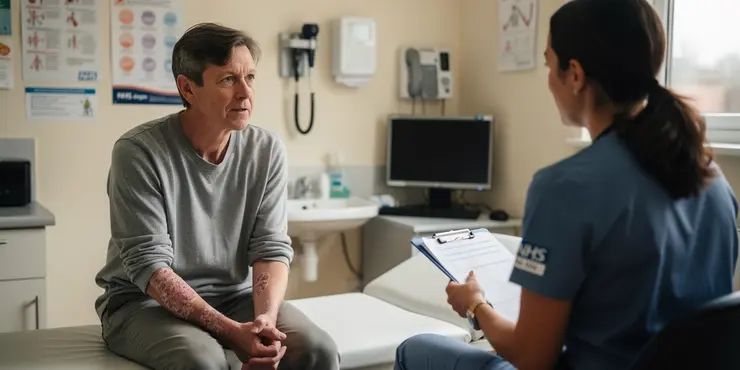
What causes psoriasis?
Relevance: 53%
-
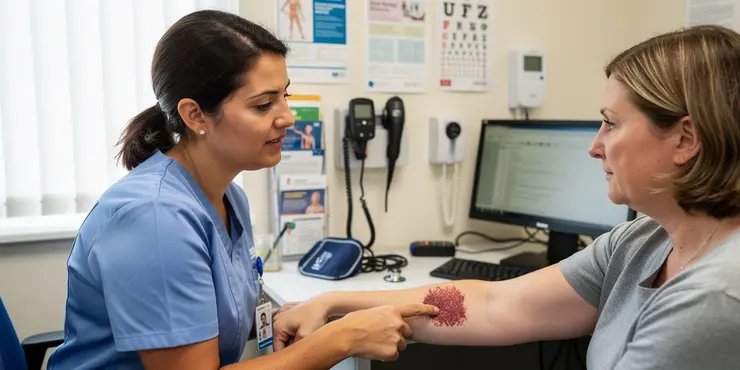
How is psoriasis diagnosed?
Relevance: 53%
-
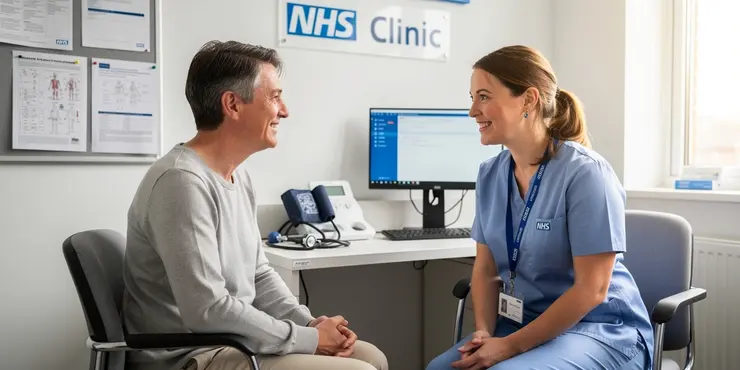
How to treat psoriasis
Relevance: 52%
-
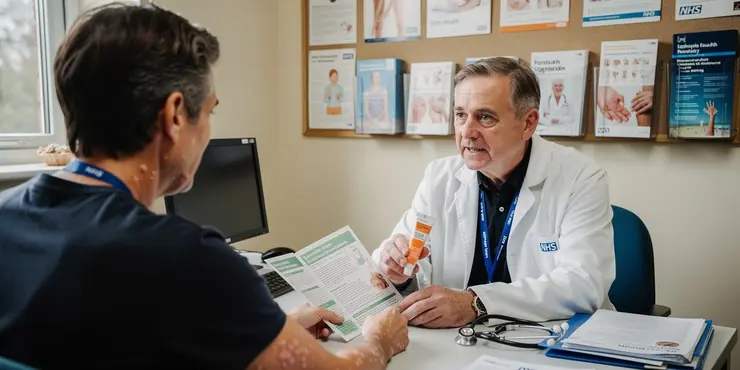
What are topical treatments for psoriasis?
Relevance: 50%
-

Are there home remedies for psoriasis?
Relevance: 49%
-
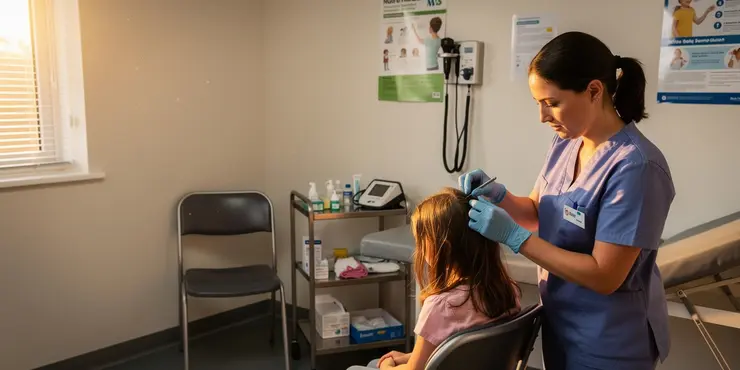
Do nits live off the scalp?
Relevance: 47%
-

Can diet affect psoriasis?
Relevance: 45%
-
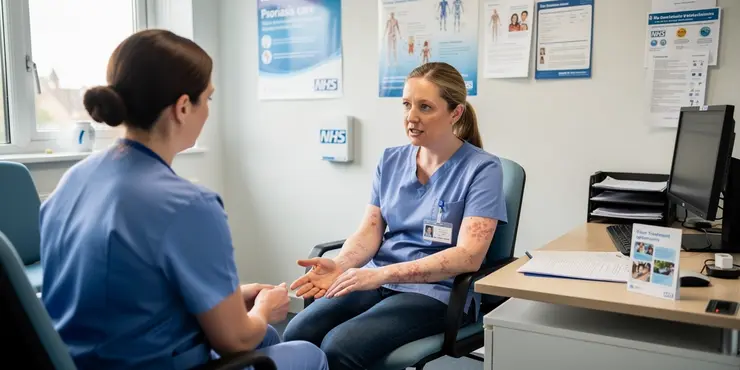
What are systemic medications for psoriasis?
Relevance: 45%
-
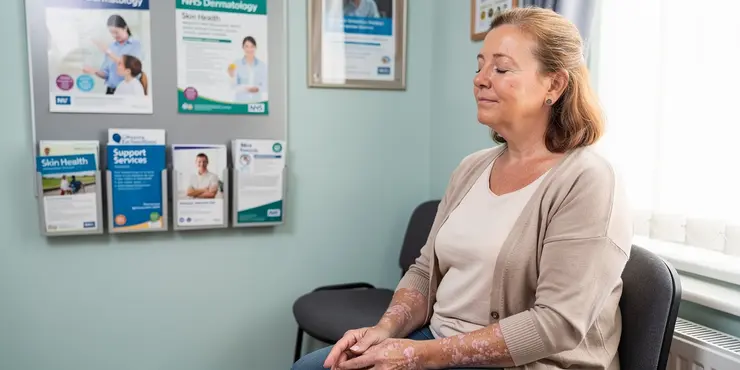
Can stress trigger psoriasis flare-ups?
Relevance: 44%
-
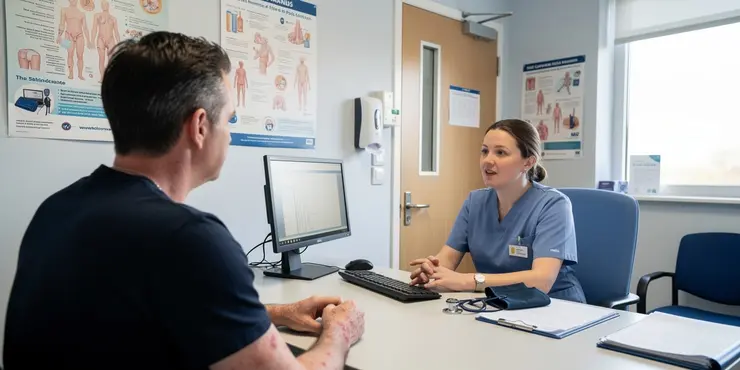
When should I see a doctor for psoriasis?
Relevance: 43%
-
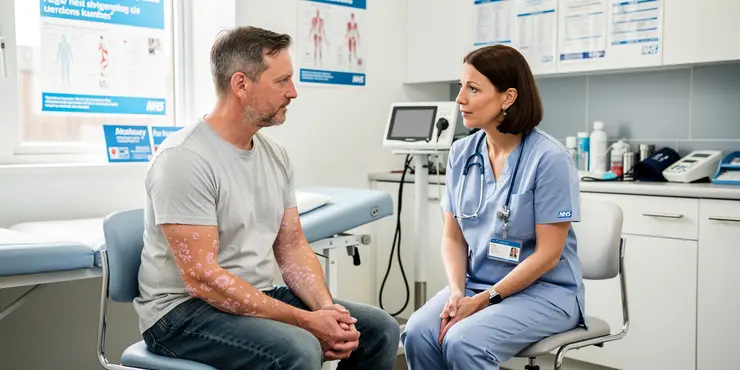
What treatment options are available for psoriasis?
Relevance: 43%
-
What role do lifestyle changes play in managing psoriasis?
Relevance: 40%
-
Is it true that sunbeds can help treat skin conditions like psoriasis?
Relevance: 37%
-
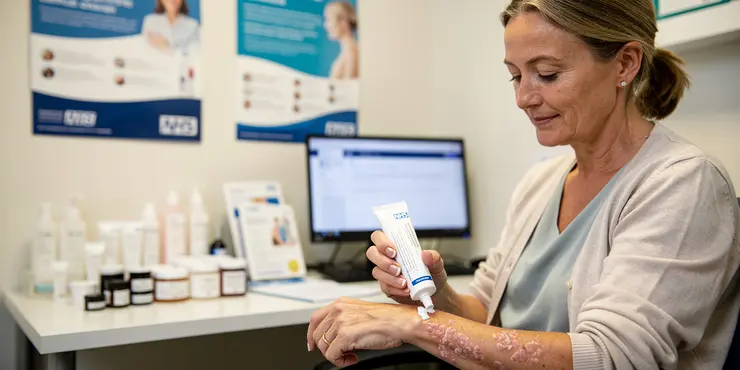
Can over-the-counter treatments help with psoriasis?
Relevance: 37%
-
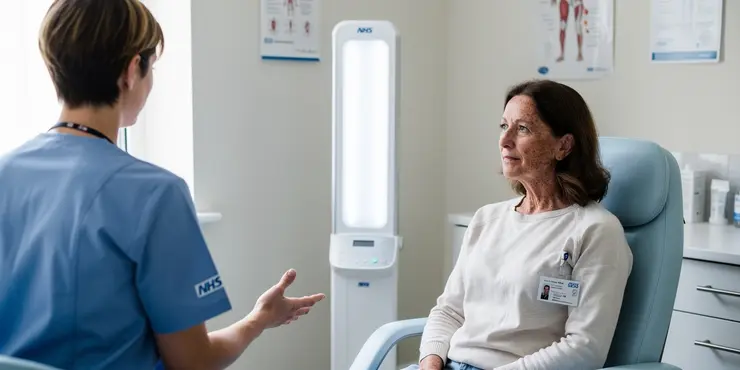
Can phototherapy help with psoriasis?
Relevance: 32%
-
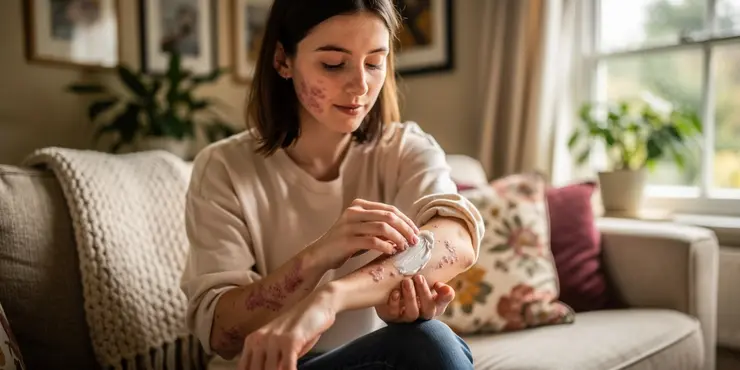
How important is it to keep the skin moisturised with psoriasis?
Relevance: 30%
-
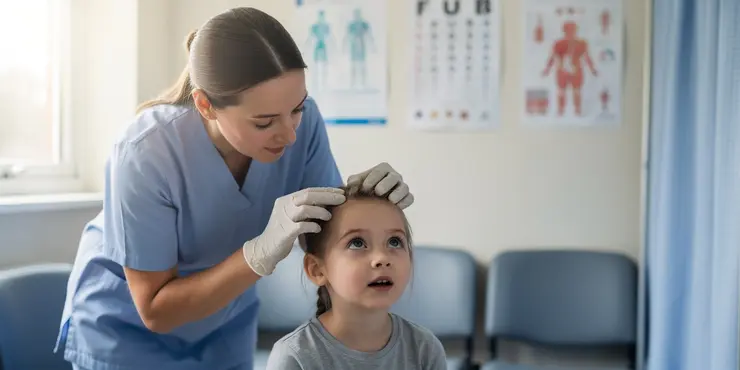
How can you differentiate nits from dandruff?
Relevance: 21%
-
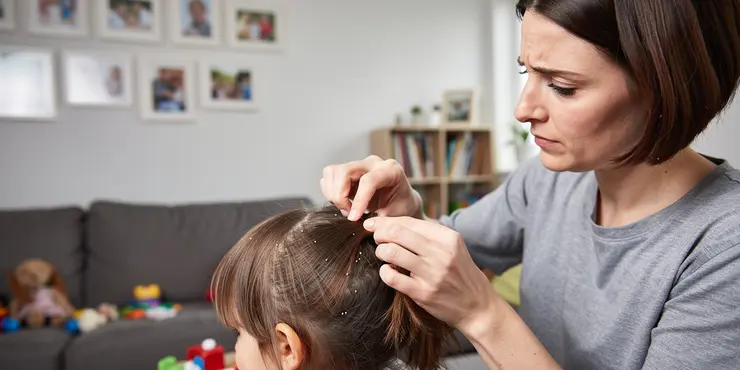
How do lice lay nits?
Relevance: 20%
-
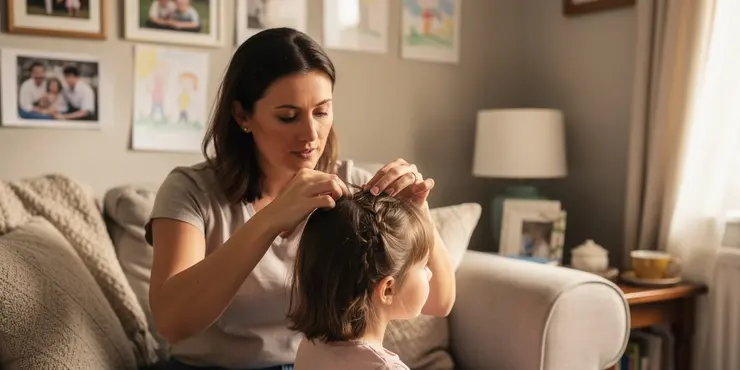
Can nits survive on furniture or clothing?
Relevance: 19%
-
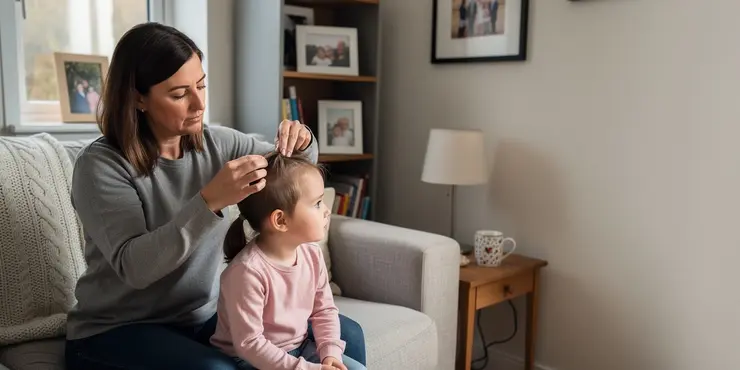
Are nits and head-lice the same thing?
Relevance: 19%
-
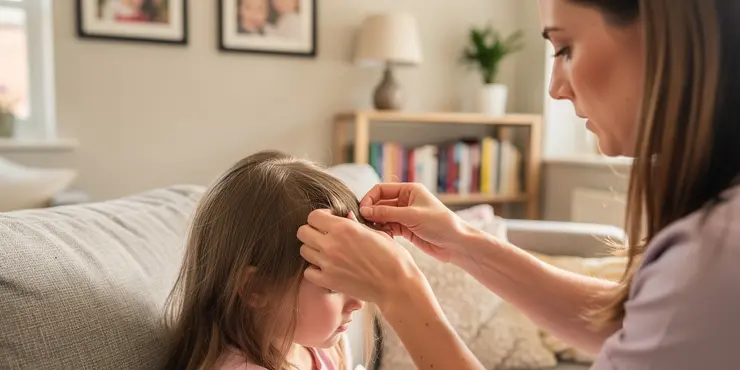
Can nits hatch into lice?
Relevance: 17%
-
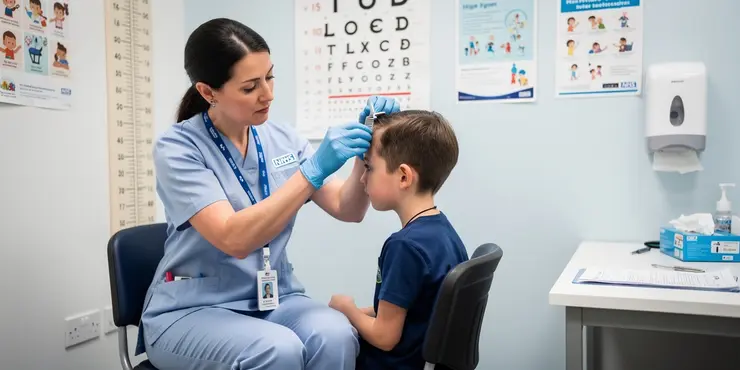
Where can nits be found?
Relevance: 16%
-
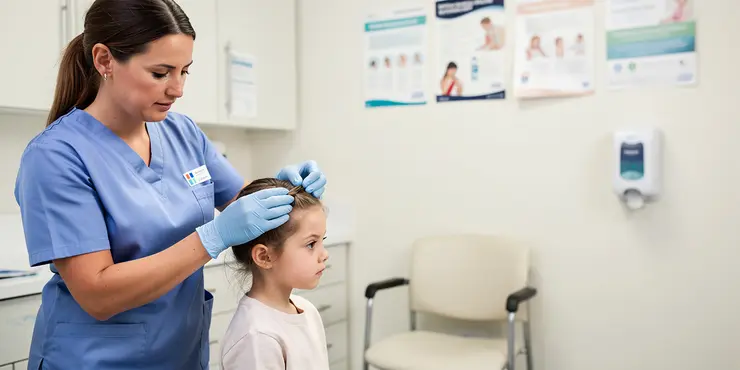
What do nits look like?
Relevance: 15%
-

How long does it take for nits to hatch?
Relevance: 15%
-
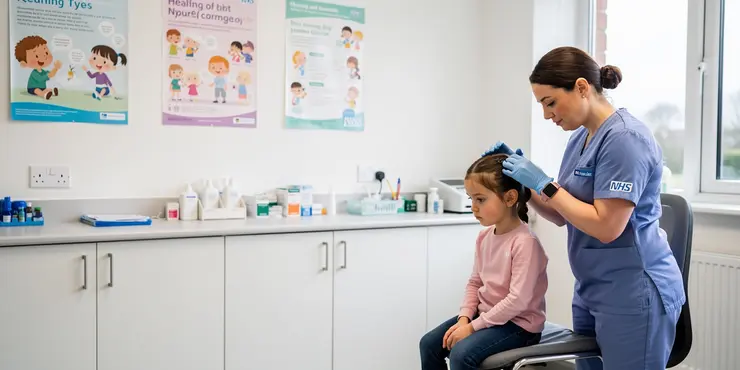
Are nits and head lice the same thing?
Relevance: 15%
-

What techniques are used for hair transplants in Turkey?
Relevance: 14%
-

What are head lice?
Relevance: 13%
-
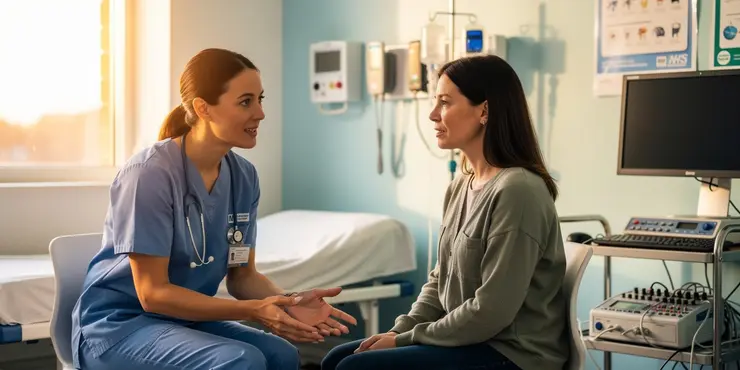
Neurophysiology EEG Patient Information
Relevance: 13%
-
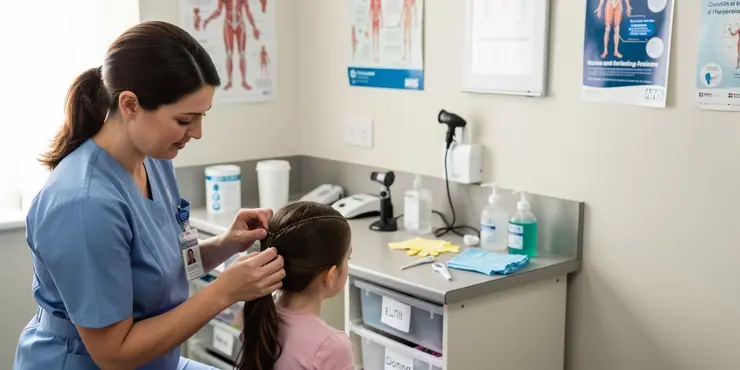
Are nits contagious?
Relevance: 12%
-

Epilepsy research: EEG | NHS
Relevance: 11%
-

What happens when my child has an EEG?
Relevance: 11%
-
Are there any health benefits to tanning on sunbeds?
Relevance: 10%
-
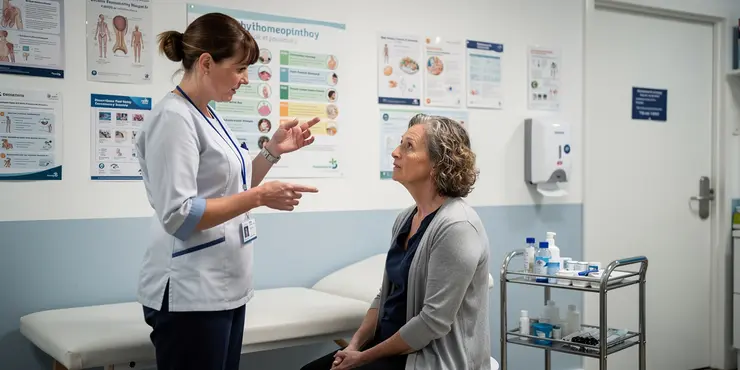
What are some common conditions treated with homeopathy?
Relevance: 10%
-
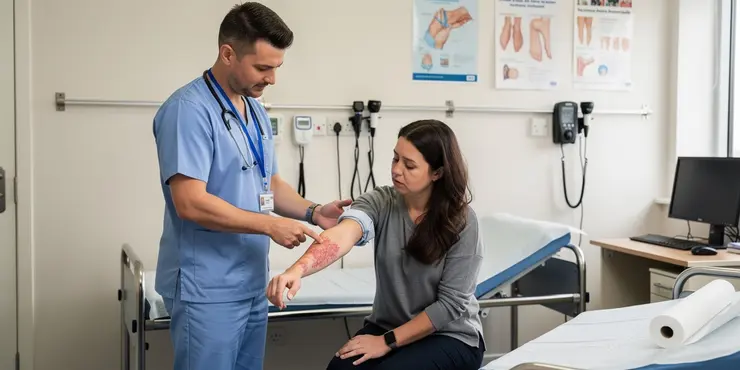
How can eczema be diagnosed?
Relevance: 10%
-
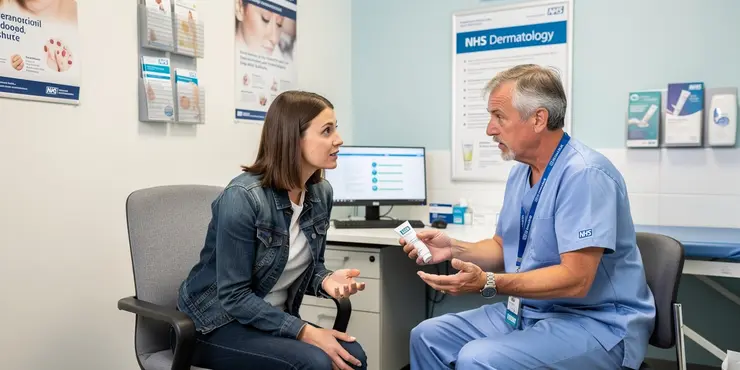
Steroid cream see Topical corticosteroids
Relevance: 9%
-
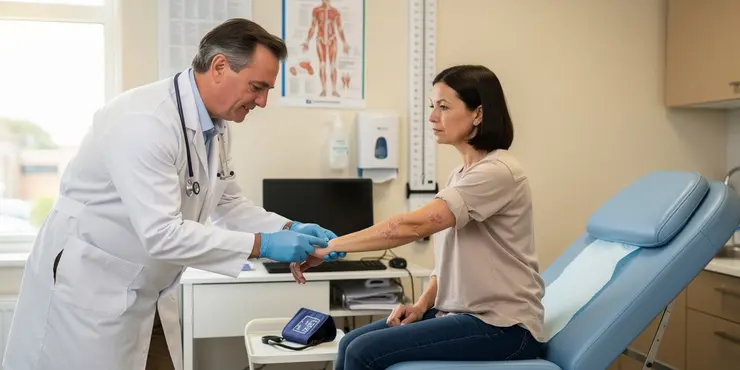
What are the symptoms of scabies?
Relevance: 9%
Treating Scalp Psoriasis
Understanding Scalp Psoriasis
Scalp psoriasis is a common skin condition that affects many people in the United Kingdom. Characterised by itchy, red patches of skin covered with silvery scales, it can range from mild to severe and can extend beyond the hairline. Understanding the condition is crucial for effective treatment and management.
Topical Treatments
Topical treatments are often the first line of defence against scalp psoriasis. Medicated shampoos containing coal tar or salicylic acid can help reduce scaling and inflammation. Prescription treatments, like corticosteroid lotions or vitamin D analogues, can be applied directly to the scalp to manage symptoms. Always follow the guidance of your healthcare provider when using these treatments.
Phototherapy
Phototherapy, also known as light therapy, involves exposing the scalp to ultraviolet (UV) light under medical supervision. This treatment can be especially effective for those with moderate to severe scalp psoriasis. Phototherapy is typically administered in a hospital or clinic setting and may require multiple sessions to achieve the best results.
Systemic Medications
For more severe cases, systemic medications may be prescribed. These include oral or injectable drugs that affect the entire body, not just the scalp. Examples include biologics and oral retinoids. These treatments can have significant side effects, so they are usually reserved for those who have not responded to other therapies.
Lifestyle and Home Remedies
In addition to medical treatments, lifestyle changes and home remedies can play a vital role in managing scalp psoriasis. Regularly moisturising the scalp, avoiding harsh hair products, and using a soft brush can help minimise irritation. Stress management techniques, such as mindfulness and exercise, can also be beneficial, as stress can exacerbate symptoms.
Consulting a Dermatologist
If you suspect you have scalp psoriasis or if your symptoms are worsening, it is important to consult a dermatologist. A specialist can provide a comprehensive treatment plan tailored to your specific needs. In the UK, you can be referred to a dermatologist through your GP, and many NHS trusts offer specialised services for managing psoriasis.
Treating Scalp Psoriasis
Understanding Scalp Psoriasis
Scalp psoriasis is a skin problem. It makes itchy, red patches on your head. Many people in the UK have it. The patches sometimes have silver scales on them. The problem can be small or big. It can go past your hairline. Knowing about it can help you treat it better.
Topical Treatments
These are medicines you put on your head. Special shampoos can help. They have coal tar or salicylic acid. They help reduce the scales and itching. Your doctor might give you special lotions, like steroid creams or vitamin D creams. Always listen to what your doctor says when using these.
Phototherapy
Phototherapy is also called light therapy. You use special light on your head. A doctor must help you with it. It is good for bigger problems. You usually go to a clinic or hospital for this. You might need to go many times to see results.
Systemic Medications
These medicines are for very bad cases. You take them as pills or shots. They work on your whole body, not just your head. Examples are biologics and retinoids. They can have strong side effects. Doctors use them when other treatments don’t work.
Lifestyle and Home Remedies
You can also help at home. Moisturise your scalp often. Don’t use harsh hair products. Use a soft brush. Try to manage stress. Stress can make it worse. Exercise and mindfulness can help reduce stress.
Consulting a Dermatologist
If you think you have scalp psoriasis, see a dermatologist. They are skin doctors. They can make a special plan for you. In the UK, you can ask your GP to see one. The NHS has services to help treat psoriasis.
Frequently Asked Questions
What is scalp psoriasis?
Scalp psoriasis is a common skin disorder that causes raised, reddish, often scaly patches on the scalp. It can extend beyond the hairline and appear on the forehead, the back of the neck, and around the ears.
What causes scalp psoriasis?
The exact cause of scalp psoriasis is not known, but it is believed to be related to an immune system problem that causes skin cells to grow too quickly. Genetics and environmental factors may also play a role.
How can I tell if I have scalp psoriasis?
Common symptoms include red patches, silvery-white scales, dandruff-like flaking, dry scalp, itching, soreness, burning, and temporary hair loss. A dermatologist can provide a definitive diagnosis.
Are there over-the-counter treatments available?
Yes, there are over-the-counter treatments like medicated shampoos containing coal tar or salicylic acid that can help reduce scaling and itching.
What prescription treatments are available?
Prescription treatments include topical steroids, vitamin D analogues, retinoids, and agents such as coal tar. In more severe cases, oral or injectable medications like biologics may be recommended.
Can lifestyle changes help manage scalp psoriasis?
Yes, maintaining a balanced diet, reducing stress, avoiding triggers, using mild hair products, and keeping the scalp moisturised can help manage symptoms.
Is it safe to dye my hair if I have scalp psoriasis?
It is generally safe, but it’s recommended to do a patch test first and consult with your dermatologist. Opt for less harsh dyes and avoid dyeing during flare-ups.
Can scalp psoriasis lead to hair loss?
Yes, scratching, harsh treatments, and severe outbreaks can lead to temporary hair loss. Once the scalp heals, hair usually grows back.
Are there natural remedies that can help?
Some people find relief using natural remedies such as aloe vera, coconut oil, apple cider vinegar, and tea tree oil. However, always consult with a healthcare provider before trying new treatments.
Does diet impact scalp psoriasis?
While there is no definitive diet for scalp psoriasis, some people find that certain foods, like those high in anti-inflammatory properties, can help manage symptoms. Avoiding triggers such as alcohol and smoking can also be beneficial.
Is scalp psoriasis contagious?
No, scalp psoriasis is not contagious. It cannot be spread from person to person.
How does UV light treatment work for scalp psoriasis?
UV light therapy, or phototherapy, involves using ultraviolet light to slow down the rapid skin cell growth. This treatment should only be performed under medical supervision.
Can children get scalp psoriasis?
Yes, children can develop scalp psoriasis. If you suspect your child has it, consult a pediatric dermatologist for appropriate treatment options.
Does weather affect scalp psoriasis?
Weather can impact scalp psoriasis. Cold, dry weather can worsen symptoms, while moderate sunlight can improve them. Always use sun protection and consult with your dermatologist.
When should I see a doctor for scalp psoriasis?
You should see a doctor if over-the-counter treatments aren’t effective, if you experience severe discomfort or hair loss, or if your scalp symptoms get worse or spread. A dermatologist can recommend a tailored treatment plan.
What is scalp psoriasis?
Scalp psoriasis makes your head skin dry and flaky. It looks like dandruff, but it is thicker and can be red and itchy.
If you have scalp psoriasis, it is good to see a doctor. They can help you find the right medicine or shampoo.
Here are some things that might help:
- Use a special shampoo for dry skin.
- Gently brush your hair to remove flakes.
- Ask for help if it feels itchy or sore.
If reading is hard, ask someone to read with you. They can help you understand better.
Scalp psoriasis is when the skin on your head gets red, bumpy, and can have flaky patches. It can spread to your forehead, the back of your neck, and around your ears.
What makes scalp psoriasis happen?
Scalp psoriasis is when your skin gets red, itchy, and flaky on your head. It happens because the skin cells grow too fast.
How can you understand better?
- Try reading one sentence at a time.
- Use a ruler or your finger to keep your place.
- Have someone read with you or to you.
Scalp psoriasis is a skin problem. We don't know what causes it. It might happen because the body’s defense system is not working right. This makes skin grow too fast. Your family history and things around you might also be reasons for it.
How do I know if I have scalp psoriasis?
Scalp psoriasis is when your head has thick, red, and scaly patches.
Here are some signs to look for:
- Red patches on your head
- Flaky skin that looks like dandruff
- Itchy scalp
- Dry scalp that feels sore
If you think you have these signs, ask a doctor for help.
You can also use helpful tools like:
- A mirror to look closely at your scalp
- A soft brush to gently remove flakes
- A gentle shampoo for sensitive skin
Some common signs are red spots, white flaky skin, skin peeling like dandruff, dry skin on your head, itchy feelings, sore spots, burning feelings, and sometimes losing hair for a while. A skin doctor can tell you exactly what is happening.
Can I buy medicine without a prescription?
You can get some medicines from a shop without needing to see a doctor. These are called over-the-counter medicines. They can help with minor problems like a headache or a cold.
If you are not sure what to buy, ask someone in the shop for help. You can also talk to a pharmacist.
Remember to read the instructions on the package. If you still have questions, ask an adult or a pharmacist for advice.
Yes, you can buy special shampoos from the store. These shampoos have things like coal tar or salicylic acid in them. They can help make your scalp less itchy and stop it from having flaky skin.
What medicine can a doctor give me?
If your skin is itchy or sore, doctors can give you special creams and medicines to help. These include:
- Creams with medicine inside, like steroids, to calm the skin.
- Creams with vitamin stuff to help the skin heal.
- Creams with vitamin A to make skin healthy.
- A special sticky stuff called coal tar that helps stop itchiness.
If your skin is really bad, doctors might give you medicine you swallow or get from a needle. These strong medicines can help make your skin better.
Tools like reading apps can read this text out loud. They help when reading is hard. Also, it's good to ask someone to explain if you don't understand.
Can changing how we live help with keeping scalp psoriasis under control?
Yes, you can help your symptoms by eating healthy foods, staying calm, staying away from things that cause problems, using gentle hair products, and keeping your scalp (the skin on your head) soft and moist.
Can I dye my hair if my scalp is sick?
If your head skin (scalp) is sore or itchy, it can be due to a sickness called psoriasis. Psoriasis makes the skin red and flaky. You might wonder if it's okay to use hair dye.
Before dyeing your hair:
- Ask a doctor: It is important to talk to a doctor or a skin expert to be sure.
- Check ingredients: Look at what's in the hair dye. Some ingredients can make your scalp itch or hurt more.
- Do a patch test: Put a tiny bit of dye on your skin first to see if you get a bad reaction.
- Use gentle products: Pick dyes and shampoos that say they are gentle or made for sensitive skin.
Always take care of your scalp and ask for help if you need it.
It is usually safe. But, it is a good idea to do a small test first. Ask your skin doctor if you are not sure. Choose gentle hair colors. Do not use them if your skin is sore.
Can scalp psoriasis make your hair fall out?
Yes, scratching your head, using strong treatments, and having bad skin problems can make your hair fall out for a while. But don’t worry, when your scalp gets better, your hair usually grows back.
Can natural things help you feel better?
Some people feel better using natural remedies like aloe vera, coconut oil, apple cider vinegar, and tea tree oil. But always talk to a doctor before trying new things.
Can what we eat affect scalp psoriasis?
Scalp psoriasis is a skin problem. It makes the skin on your head red and itchy, with white scaly patches.
Some people wonder if eating healthy foods can help with scalp psoriasis.
Here are some tips that might help:
- Eat lots of fruits and vegetables. They are good for your skin.
- Try to eat less sugar and junk food. These foods can be bad for your skin.
- Drink plenty of water. Staying hydrated is important for your skin.
If you need help, you can talk to a doctor or a dietitian. They can give you advice on what foods are best for you.
There is no special diet for scalp psoriasis that works for everyone. But some foods might help. Foods that reduce swelling can be good. Try not to drink alcohol or smoke as these can make it worse.
Can you catch scalp psoriasis from someone?
No, scalp psoriasis does not spread to other people. You cannot catch it from someone else, and they cannot catch it from you.
How does UV light help with scalp psoriasis?
UV light treatment can help people with scalp psoriasis. Here's how it works:
- What is psoriasis? Psoriasis is when your skin gets red, itchy, and makes thick, flaky patches.
- What is UV light? UV light comes from the sun. Special lamps can also make UV light.
- How does UV light treatment work? UV light can help reduce the itchy and flaky patches on your scalp. The light stops the skin cells from growing too fast.
- How is the treatment done? A doctor uses a special lamp to shine UV light on your scalp. You might need to have this treatment a few times a week.
- Is it safe? Yes, but it is important to have the treatment at a doctor's office to keep it safe.
- Helpful tips:
- Ask your doctor questions if you don't understand something.
- Wear sunglasses to protect your eyes from UV light.
- Tell your doctor if it hurts or your skin feels worse.
UV light therapy is a way to help skin problems. It uses UV light to slow down how fast skin cells grow. A doctor must be the one to do this treatment.
Can kids get psoriasis on their heads?
Yes, kids can get a skin problem on their heads called scalp psoriasis. If you think your child has it, talk to a special skin doctor for kids. They can help find the right treatment.
For help, use picture books and stories that explain skin conditions in simple words. You can also ask someone who knows about skin health for advice.
Does the weather change scalp psoriasis?
Weather means if it is sunny, rainy, hot, or cold outside.
Scalp psoriasis is when your skin on your head is red and itchy.
Sometimes, the weather can change how your head feels. For example, cold and dry weather might make it feel worse. Warm and sunny weather might help it feel better.
If you have scalp psoriasis, talk to your doctor. They can give you tips to help. Using special shampoo and lotion can also help your scalp feel better.
The weather can change scalp psoriasis. Cold and dry weather can make it worse. Warm sunlight can make it better. Always use sun protection and talk to your skin doctor for advice.
When do I need to see a doctor for scalp psoriasis?
If the shampoos and creams from the shop don't help, or if your head is very sore, you lose a lot of hair, or your head gets worse, you should see a doctor. A skin doctor, called a dermatologist, can help you find the right treatment.
Useful Links
This website offers general information and is not a substitute for professional advice.
Always seek guidance from qualified professionals.
If you have any medical concerns or need urgent help, contact a healthcare professional or emergency services immediately.
Some of this content was generated with AI assistance. We’ve done our best to keep it accurate, helpful, and human-friendly.
- Ergsy carfully checks the information in the videos we provide here.
- Videos shown by Youtube after a video has completed, have NOT been reviewed by ERGSY.
- To view, click the arrow in centre of video.
- Most of the videos you find here will have subtitles and/or closed captions available.
- You may need to turn these on, and choose your preferred language.
- Go to the video you'd like to watch.
- If closed captions (CC) are available, settings will be visible on the bottom right of the video player.
- To turn on Captions, click settings .
- To turn off Captions, click settings again.
More Items From Ergsy search
-

Treating scalp psoriasis
Relevance: 100%
-

Psoriasis | NHS
Relevance: 58%
-

What is psoriasis?
Relevance: 57%
-

Is there a cure for psoriasis?
Relevance: 55%
-

What causes psoriasis?
Relevance: 53%
-

How is psoriasis diagnosed?
Relevance: 53%
-

How to treat psoriasis
Relevance: 52%
-

What are topical treatments for psoriasis?
Relevance: 50%
-

Are there home remedies for psoriasis?
Relevance: 49%
-

Do nits live off the scalp?
Relevance: 47%
-

Can diet affect psoriasis?
Relevance: 45%
-

What are systemic medications for psoriasis?
Relevance: 45%
-

Can stress trigger psoriasis flare-ups?
Relevance: 44%
-

When should I see a doctor for psoriasis?
Relevance: 43%
-

What treatment options are available for psoriasis?
Relevance: 43%
-
What role do lifestyle changes play in managing psoriasis?
Relevance: 40%
-
Is it true that sunbeds can help treat skin conditions like psoriasis?
Relevance: 37%
-

Can over-the-counter treatments help with psoriasis?
Relevance: 37%
-

Can phototherapy help with psoriasis?
Relevance: 32%
-

How important is it to keep the skin moisturised with psoriasis?
Relevance: 30%
-

How can you differentiate nits from dandruff?
Relevance: 21%
-

How do lice lay nits?
Relevance: 20%
-

Can nits survive on furniture or clothing?
Relevance: 19%
-

Are nits and head-lice the same thing?
Relevance: 19%
-

Can nits hatch into lice?
Relevance: 17%
-

Where can nits be found?
Relevance: 16%
-

What do nits look like?
Relevance: 15%
-

How long does it take for nits to hatch?
Relevance: 15%
-

Are nits and head lice the same thing?
Relevance: 15%
-

What techniques are used for hair transplants in Turkey?
Relevance: 14%
-

What are head lice?
Relevance: 13%
-

Neurophysiology EEG Patient Information
Relevance: 13%
-

Are nits contagious?
Relevance: 12%
-

Epilepsy research: EEG | NHS
Relevance: 11%
-

What happens when my child has an EEG?
Relevance: 11%
-
Are there any health benefits to tanning on sunbeds?
Relevance: 10%
-

What are some common conditions treated with homeopathy?
Relevance: 10%
-

How can eczema be diagnosed?
Relevance: 10%
-

Steroid cream see Topical corticosteroids
Relevance: 9%
-

What are the symptoms of scabies?
Relevance: 9%


